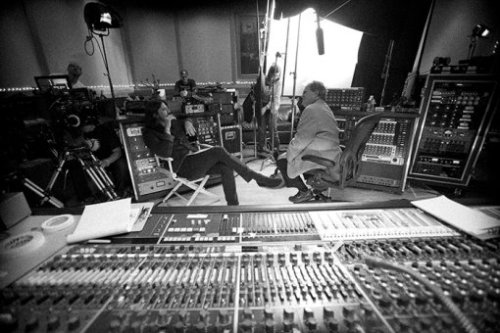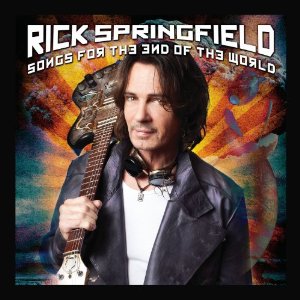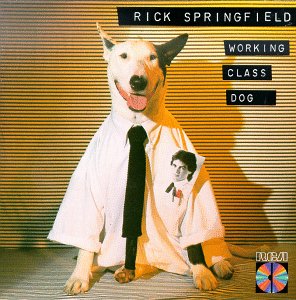 Just want to take a moment and go on record with this prediction: Dierks Bentley’s song “Bourbon in Kentucky” (out on June 15) will end up as the smash, everybody-knows-the-words country hit of the year. Sweep the year-end awards. Make him piles of money as a catalyst for his new Riser album.
Just want to take a moment and go on record with this prediction: Dierks Bentley’s song “Bourbon in Kentucky” (out on June 15) will end up as the smash, everybody-knows-the-words country hit of the year. Sweep the year-end awards. Make him piles of money as a catalyst for his new Riser album.
Huge. I’m just sayin’.
I can’t be sure how I came upon the streaming track this week- either banging around the iTunes store or down some crazy web musical rabbit hole. Doesn’t matter. Heard it once and knew it. The song “sounds” huge. Arena rock huge. Big like a U2 anthem. But the vocals are close-miked. Nuanced. Lyrics? They work, because the sound is freaking countryfried long-lasting ear candy.
Heard it here first. Biggest song in country music. Unlike anything else on country radio right now.
roots rock twang news
Interview from NPR / Dave Grohl: The legendary Sound City soundboard story
 Mildly obsessed. That’s my self-diagnosis regarding Dave Grohl’s new Sound City documentary. I think the idea of a ratty rock studio and a magical sound board is highly addictive. Team it with a tour, promoting the premiere of the movie with a band called The Sound City Players – essentially the Foo Fighters, with rotating cast of Rick Springfield, John Fogerty, Rick Nielsen and Stevie Nicks. I’m hooked. Cool, fun, loud little clips on YouTube. Check them out. And here’s a story from NPR about the legendary sound board in the Sound City control room. The board (that Grohl believes has soulful and magical powers) that recorded Fleetwood Mac’s Rumours, and Nirvana’s Nevermind, for goodness sake. Grohl now owns it, moving it from the original home to his house.
Mildly obsessed. That’s my self-diagnosis regarding Dave Grohl’s new Sound City documentary. I think the idea of a ratty rock studio and a magical sound board is highly addictive. Team it with a tour, promoting the premiere of the movie with a band called The Sound City Players – essentially the Foo Fighters, with rotating cast of Rick Springfield, John Fogerty, Rick Nielsen and Stevie Nicks. I’m hooked. Cool, fun, loud little clips on YouTube. Check them out. And here’s a story from NPR about the legendary sound board in the Sound City control room. The board (that Grohl believes has soulful and magical powers) that recorded Fleetwood Mac’s Rumours, and Nirvana’s Nevermind, for goodness sake. Grohl now owns it, moving it from the original home to his house.
From NPR.com
It wasn’t much to look at: a nondescript building in the San Fernando Valley with hideous brown shag carpeting on the walls. But from the 1970s on, the Sound City recording studio turned out a ridiculous amount of great music: classic recordings by Fleetwood Mac, Neil Young, Tom Petty, Metallica, Rage Against the Machine and many others.
Dave Grohl and his bandmates in Nirvana were practically unknown in 1991 when they pulled up to Sound City in a rusted white van. But the album that came out of that session, Nevermind, turned rock music on its head.
In his new documentary and accompanying soundtrack, Sound City: Real to Reel, the Nirvana drummer and Foo Fighters founder pays homage to that studio — and its distinctive soundboard.
FULL NPR STORY
http://youtu.be/nv4HNp7pzLQ
British guitarist Alvin Lee of Ten Years After dies
Best known for his performance with rock band Ten Years After at Woodstock in 1969, Alvin Lee died on Wednesday at age 68, his family said. “I’d Love to Change the World” is the tune I most associate with the band. But performance at Woodstock was iconic. (Read Rueters story)
Oddly, here’s the other song I remember from Alvin Lee. In the mid 80’s, Q-95 in Indianapolis was playing “Detroit Diesel”. Or at least that’s what I think is my memory. Here is a video with the cut from the album. Pretty generic bloozy pub rock, but I think I liked the chorus… RIP
http://youtu.be/hIePT6Q1h1M
Indiana Music: Bill Wilson – Album Reissue – "Ever Changing Minstrel"
 One night in February, 1973, Indiana folk rock legend Bill Wilson was a 25 year-old musician looking for a break. So he drove to Nashville and knocked on the kitchen door of producer Bob Johnston, the guy who had produced Bob Dylan’s Highway 61 Revisited and Blonde on Blonde albums, and Johnny Cash’s at Folsom Prison and I Walk the Line records
One night in February, 1973, Indiana folk rock legend Bill Wilson was a 25 year-old musician looking for a break. So he drove to Nashville and knocked on the kitchen door of producer Bob Johnston, the guy who had produced Bob Dylan’s Highway 61 Revisited and Blonde on Blonde albums, and Johnny Cash’s at Folsom Prison and I Walk the Line records
What happened after that is murky, beautiful and puzzling.
According to the liner notes of Wilson’s debut album, Johnston answered the door to find Wilson standing there, saying “I’m Bill Wilson and I want to make a record.”
“Well, you came to the wrong house,” Johnson answered. “You can’t just show up and make a fucking record.”
“Will you listen to one song?” asked Wilson.
“One song,” said Johnston.
A Vietnam vet who hung around in the Austin scene, Wilson’s spark must have been evident to Johnston, because the producer let the singer in, allowed him to play, and as legend has it – there are no official notes that confirm it – rounded up many of the guys who played on Dylan’s Blonde on Blonde to record Ever Changing Minstrel in one night.
The remastered (from the original tapes) album is now reissued by Tompkins Square with rare photographs, notes by reissue producer and Tompkins Square label owner Josh Rosenthal. “I bought the original album for a quarter at a record store in Berkeley, California in January 2012,” Rosenthal says. “I had never seen it before. I worked at Sony for 15 years, and thought I knew the catalog pretty thoroughly. I loved it and worked out a license with Sony We’ve almost sold through our first press. We can probably sell a few thousand around the world,” Rosenthal says.
Originally released on Windfall Records (an major imprint of CBS/Columbia at the time) in 1973, the tracks laid down are a time capsule of the Nashville-Dylan hybrid of folk rock from the early 1970s Folk rock framed by piano, filled with airy drums, kept gritty with some surprisingly dirty guitar lines and, just because that’s what was happening at the time, includes Elvis-inspired gospel backup vocals. Lyric-driven ballads backed by session pros and swampy, Memphis-like singer/songwriter soul cuts; the sound of Dylan, Jerry Jeff Walker and Joe South.
As it happened, Columbia Records was changing management when the record came out and Wilson, the singer-songwriter from Indiana, suddenly wasn’t a priority. The record faded away. It doesn’t make the record any less thrilling. Instead, there a mystical quality to the music. How does this fall through the cracks? And how many other talented musicians suffered the same circumstances?
“Rainy Day Resolution” talks of “singing this song of freedom,”, and “Pay Day Giveway” is highlighted by Clapton-esque guitar lines and rolling blasts of words that give the verses a “Blinded By The Light” feel.
It’s a revealing glimpse of the early, fire-is-burning Wilson, who still holds a legendary place among the cult of Hoosier folk rock affecianados. A Central Indiana influence for 20 years of songwriters, he spent more time playing clubs, coffee houses and lounges than he did pursuing another record deal. He struck one more time as a songwriter, co-writing “Sultans of Swing” for Dire Straits. He later told an audience that he bought a truck with the money he made off the song after it became a hit.
“To Rebecca” is a beautiful slow build slice of acoustic guitars, while one of the best cuts is “Father Let Your Light Shine Down, straight out of the Saturday night gospel barns; inspirational church music cut from the musical cloth o”f south. “Following My Lord” carries forward the subtle theme of looking for faith that rides through the record.
The title cut sounds like it could have come the same hazy dawn that inspired Kristofferson to write “Sunday Morning Comin’ Down.” The set’s closer, “Monday Morning Strangers,” pulls out a “sleepy sidewalk pushes on” line that furthers that connection, with the loniliness of Sunday replaced by a “whenever Monday morning rolls around.” Added bonus: the track contains one of the juiciest Allman Brothers-like guitar solos unearthed in a long time.
After the debut, Wilson went on to record more independent albums, including Made in the USA (1982) and Talking to Stars (1977). His final album, Traction in the Rain, came out a year before his death. “Indianasong” from that album revealed how good Wilson was at what he did, all those years later. He had grown into a John Prine-like performer, and that genius is part of what makes this reissue sweet and beautiful and sad. He was really good.
A massive heart attack claimed Wilson’s life in November of 1993, while he was in Nashville visiting a friend.
Website: Bill Wilson tribute site
Website: Tompkins Square record label
Interview: Bob Johnston interviewed about Bill Wilson and the recording of the album – Nashville Scene – September , 2012
——-
Interview: Indiana guitarist (John Prine) and singer/songwriter Jason Wilber and WFHB radio’s (Bloomington) Program Director Jim Manion talk about Bill Wilson – from Wilber’s “In Search of a Song” interview series/sho
Indiana Album review – Owen Thomas – "Languages"
 With his first solo album, Owen Thomas will not escape comparisons to his former group, The Elms, the Indiana rock and roll band that disbanded nearly two years ago on the heels of their best album, The Great American Midrange
With his first solo album, Owen Thomas will not escape comparisons to his former group, The Elms, the Indiana rock and roll band that disbanded nearly two years ago on the heels of their best album, The Great American Midrange
Owen Thomas’ new album Languages {Or: Get Dark & Find Yourself.}, the rocker has written a damn good set of songs about rejection and fortitude. Thomas clearly hasn’t run from the band’s sound.
Instead, he has created a more lyrically introspective record and allows two of his former bandmates – guitarist Thom Daugherty and Thomas’ brother Chris on drums – to give the set a familiar, though updated, sound.
And he wraps his words in music that is hook-filled, heartland power pop. He has crafted a record that takes a strong lyrical step into the potentially slicker space of pop music without losing the crunch and earthiness of the Elms.
The heartland combination of music and lyrics makes for one of the very best albums – national or local – of the 2012. “Houdini” opens the set an understated vocal amidst churning guitars and gospel-pop chord changes, finally giving way to Thomas’ “Philadelphia Freedom” shouts of “Yes I do” by song’s end.
“I Don’t Miss Carin'” may be the best cut on the record; a great groove that belies a bittersweet message to a former love. Daugherty’s guitar slides in and out with hard-strummed chords, and he adds a sweet and dirty little solo to Thomas’ vocal “whoo-whoo’s”.
Soul-based pop from an Indiana guy? “I Might Be a Ghost!” lets Thomas use his supple voice to turn the tune into a midtempo hip shaker.
It’s a tightly produced record, though thumping drums and a healthy slice of guitar seep their way into the mix, dare we say, perfectly. Daugherty and Thomas are a potent combination of vision, feel and execution. Gloss and raunch. Shine and grease. Neither player solely one or the other. The two former bandmates still work well together, sharing bits of beauty and midwest rock grit.
“I Am High Above You” glides along and slowly, and subtly turns into a pulsating little rocker. “What You Say and What You Do” brings memories of The Cars with some 1950’s doo-wop-ish chord changes.
One addition to recording canon here is the use of loops to give the album a contemporary feel. Much like Springsteen crafted his recent Wrecking Ball album around pieces of music and beats, looped together and overlayed with the trademark Boss sounds, Thomas travels a similar-sounding road. He shows chops as a rock singer in the Jagger tradition of sass and smart, and lets his guitarist and drummer push the energy level higher. Smartly done.
“Who Knows” closes the album with a nod to the old sound of The Elms. The song’s line “Who knows where the road is going” is as good of a theme as any to describe the new album. The record – and life – is a search for truth and resiliency when both facts and emotion intrude. As the closer provides a neat reminder of how good The Elms were as a band, the song also gives power to the new sounds on this record; the words and music of the entire album. It helps prove just how good the music is that Thomas is now making on his own.
Album Review – Rick Springfield – “Songs for the End of the World”
 Rick Springfield released one of the greatest power pop records ever. No, it’s not his new album Songs for the End of the World, though there are echoes worth hearing.
Rick Springfield released one of the greatest power pop records ever. No, it’s not his new album Songs for the End of the World, though there are echoes worth hearing.
With his 1981 album Working Class Dog, and the song “Jessie’s Girl”, he found the formula to make one of rock’s best-ever power pop records, right up there with the stuff of Cheap Trick, The Romantics, Matttew Sweet and The Cars. The guitars, the sugary background  vocals and three-minute pop/rock songs about girls and boys and more girls made the album a surprise hit record.
vocals and three-minute pop/rock songs about girls and boys and more girls made the album a surprise hit record.
He would never match that sound or vibe again.
He’s given his new album a “take-a-dip-from-past” wash of his previous records, splashing guitar-driven, hook-laden, layered background vocals on the pop/rock. While not a truly great record, it is his best since returning to recording a little more than ten years ago.